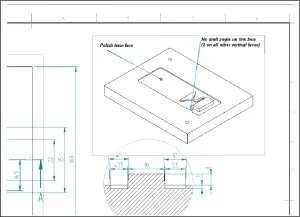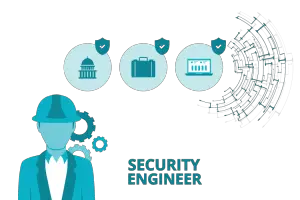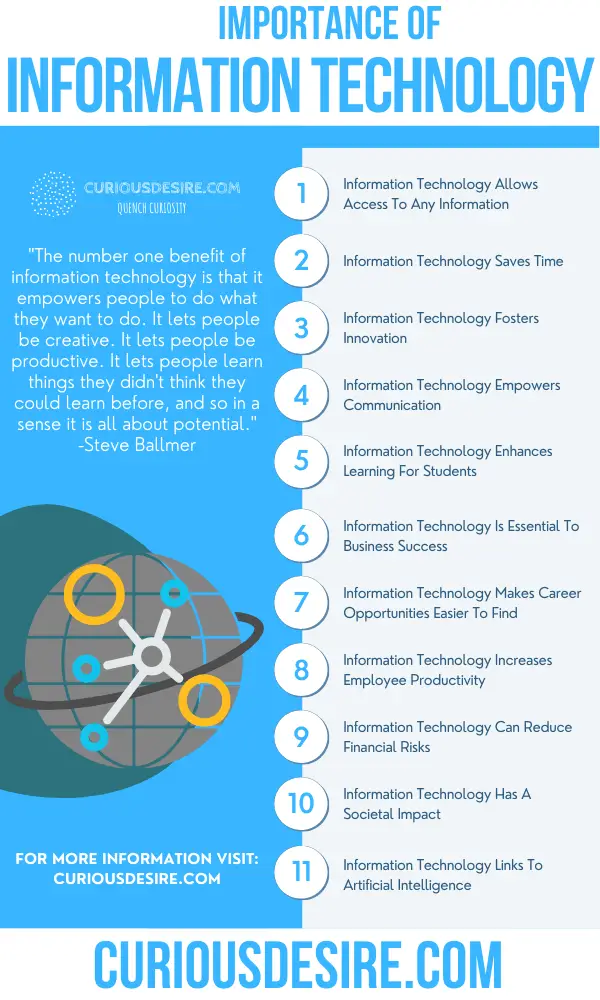In recent years, the job market for engineers, who are highly specialized professionals, has been expanding due to the high demand for them. This time, we will pick up and explain 10 representative job types, from general-purpose machines to web development, embedded, security, and sales, which are said to be IT-related, especially among engineers.
We will introduce the differences between various engineers, the skills required, future changes in demand, career paths, etc. Please use it as a reference.
General-purpose/open type
General-purpose/open systems are focused on the development of business applications for companies. We develop, build, maintain, and operate large-scale systems such as accounting, human resources, sales management, and internal systems.
In general-purpose system development, there are many tasks such as repair, reconstruction, operation, and maintenance of core systems of major financial institutions (credit cards, various insurance, banks, etc.) using languages such as COBOL.
The open system builds systems mainly in languages such as Java, C++, and .Net in development environments such as Linux, .NET Framework, and Windows.
System Engineer
A position that proposes and designs such general-purpose/open systems is called a system engineer. In addition to IT knowledge and engineering skills, industry knowledge of the project you are in charge of is also required.
Until now, many job applicants have gathered at major Siers and SES companies that undertake development under their umbrella. However, when a general company develops or reconstructs an in-house system, the trend has changed to do system development in-house rather than externally. As one of the corporate strategies, the accumulation of know-how that cannot be obtained from external development, the speedy development, and the increasing number of companies aiming to strengthen their IT strategy has also had an impact.
With the rapid expansion of the IT market, the demand for system engineers has increased significantly, so it can be said that system engineers are jobs with a future. For this reason, there is a growing trend among general companies to actively employ in-house SEs who can perform work in the four stages of planning, development, operation and maintenance in-house.
There are various career paths for system engineers. In addition to taking the Information Technology Engineer Examination and acquiring national qualifications, there are also career advancement opportunities such as project leaders, project managers, and consultants. You can also consider becoming independent as a freelance system engineer.
bridge engineer
A bridge engineer plays a role similar to a project manager, connecting domestic and overseas development sites. In recent years, there has been a shortage of Japanese engineers, and an increasing number of companies are hiring overseas personnel and conducting local development.
However, it is also true that outsourcing to overseas development companies carries the risk of problems related to communication and quality maintenance. Therefore, in addition to developing skills, a bridge engineer who understands language ability, culture, and business customs will go to the site and act as a bridge between the two countries, leading to problem-solving.
Types of web engineers

Web engineers can be broadly divided into five categories, front-end development that is visible to users, server-side development that is usually invisible, and engineers who support physical parts such as network infrastructure. All of them are classified as the same web system, but they demonstrate their technical capabilities in completely different fields.
One of the characteristics of web engineers is that there is high demand in every field, but since the number of people who want to become engineers often exceeds the demand, it is also a field that requires constant attention and self-improvement with a sense of urgency.
What is a server-side engineer?
Skills in server-side languages such as PHP and Ruby are important for server-side engineers. In addition, since the configuration of server equipment and software is often different each time, a wide range of knowledge is required according to the system to be constructed. Therefore, there is a tendency to seek engineers with a wide range of expertise and who can respond to any request, rather than engineers with specialized knowledge and skills for specific systems that have been in high demand, as in the past. is getting stronger.
Another feature of this field is that you are required to obtain various qualifications to prove your level of technical proficiency. Therefore, it is necessary to study for private qualifications such as Linux (Linux engineer certification), RHCSA, and MCP.
As a server-side engineer, your career path will change greatly depending on the technical skills you have acquired. In addition to deepening server-side technology and aiming to become a specialist, if you acquire skills as a front-end engineer, you can concurrently serve both, and you can aim to become a full-stack engineer, which is in high demand.
What is front end engineer?
A front-end engineer builds and implements the part of the website that the user touches directly. Front-end engineers are similar in job content to web designers, but the major difference is that they focus on coding skills and may also be responsible for
I am also in a position to consult with web designers, such as what kind of coding should be done to reproduce the design that the designer thought of, and what kind of method is there to reproduce the design.
Front-end engineers are required to have HTML, CSS, and JavaScript skills necessary for coding. In addition, knowledge of PHP and MySQL is also required because you will be in charge of building CMS such as WordPress and modifying and customizing plugins.
As the demand for websites grows, so does the demand for front-end engineers. However, front-end technology advances at a dizzying pace, and trends change quickly, so it is necessary to constantly acquire new technologies.
Career paths are diverse. Some people acquire design skills and work concurrently as web designers, people who polish their skills as server-side engineers and aim to become full-stack engineers, and people who develop their careers as UI/UX engineers.
What is a network engineer?
A network engineer is an engineer who builds switches, routers, line connections, and network systems that connect equipment among infrastructure systems. We are in a position to participate in projects from the system design stage and cover everything from proposals, to system construction, maintenance, and operation. Therefore, not only knowledge and technology for network equipment are required, but also communication skills for listening to clients and making proposals are required.
Network engineers are in high demand as IT infrastructure engineers in an era where the Internet has spread and everyone owns smart devices. Since hardware knowledge and technology are required, there is always a shortage of human resources, and demand is consistently high. For that reason, it is essential to continuously improve network-related skills, including cloud systems.
There are two major career paths. One is to aim to become a generalist who has general knowledge and skills related to web services and information systems and covers all network systems including the web. Conversely, there is also the option of aiming to become a specialist who acquires extremely deep knowledge and skills in a specific field. In either case, qualifications such as “Basic Information Engineer Qualification”, “Applied Information Engineer Qualification”, “CCNA”, and “Network Specialist” are valid.
What is an infrastructure engineer?
Infrastructure engineers are engineers who design, build, operate and maintain servers. Unlike network engineers, server engineers build servers to operate corporate information systems.
Currently, downstream processes, including monitoring and recovery, have been automated, so there is no longer a need for stationed server monitoring as in the past. However, some parts require human judgment, so the shortage of maintenance and operation personnel has not been resolved.
Due to the rise of the cloud, the number of companies that introduce on-premise servers is on the decline. The demand for infrastructure engineers is lower than before, but people are still needed at the design and construction stages.
In addition, infrastructure engineers are required to manage, maintain, operate, and repair existing on-premises servers. Therefore, if you want to become an infrastructure engineer, it is important to become a person who can use both cloud and on-premises.
Networking has become the norm in the game industry, and online games that require servers that can withstand large-scale traffic have become mainstream. New technologies such as AI and IoT are also demanding higher performance infrastructure. Against this background, the demand for infrastructure engineers will never disappear.
As a career path, you can increase your expertise as a server engineer and become a specialist. It is also possible to acquire qualifications related to infrastructure and networks such as the Information Technology Engineer Examination, Linux (Linux Engineer Certification), CCNP, etc., and aim to become a database engineer or security engineer. Other than that, some people go on to become IT, consultants.
What is a markup engineer?

Based on the site design designed by the web designer, we perform coding using HTML and CSS, image layout design, tagging, and adjustment of placement. Therefore, in addition to the basic skills of HTML and CSS, image processing using Photoshop, etc. is also required.
Understanding the intent, purpose, and content of the content, structuring the sentences, optimizing for search engines, and making markups that are easy for users to read. Is required.
The quality of the markup engineer’s work also affects the UX (user experience), so it can be said that it influences the performance of the entire site.
The difference between a markup engineer and an HTML coder is whether or not a website can be built with consideration for SEO knowledge, usability, and accessibility of the entire site. In addition, human skills are also required because it is necessary to have close communication with each department on the production site.
As a career path, there is a possibility that the opportunities for marketing engineers to play an active role may decrease in the future due to advances in artificial intelligence technology. You can acquire HTML skills and JavaScript programming and aim to become a front-end engineer, or you can use your web production experience to aim for a director position where you can propose and plan from the planning stage of site design.
What is Embedded Engineer / IoT Engineer?
I am an engineer who designs and builds control systems that are incorporated into various machines. In familiar things, mobile phones before smartphones, car navigation systems, cameras, electronic devices such as MP3 players, etc. In the industrial field, the development and production of various industrial equipment from small to large, but recently the development of IoT. Demand is soaring as a result.
In addition to hardware knowledge, embedded engineers are required to have programming language skills such as C language, Java, and assembler. In particular, the C language makes it easy to control detailed memory and hardware resource management, making it an indispensable language in the embedded field. Similarly, assembler is also a machine language that can directly control hardware resources, so it is a language that is actively used in IoT development sites.
Recently, edge AI, which operates deep learning models on embedded devices, is attracting attention. Edge AI requires AI technology in addition to embedded technology. Pasona Tech has developed Qumico, which can convert a learned model into a C language program, expanding the range of responsibilities of embedded engineers.
What is a database engineer?
Database engineers are responsible for the storage, operation, and system construction of data held by companies. In recent years, every company attaches importance to data utilization, and it is popular because it requires human resources who can manage large amounts of data and utilize data.
Recently, more and more database servers are being placed in the cloud, so knowledge of cloud-based databases is also required.
What is a cloud engineer?
As mentioned above, more and more companies are using cloud services to speed up development and reduce costs. In a new development, it is not uncommon to build the infrastructure environment on the cloud. Therefore, the demand for cloud engineers who develop, introduce and manage the cloud is increasing.
The specific work content of cloud engineers includes infrastructure design, system environment construction, maintenance, and operation on the cloud. Infrastructure knowledge such as OS and middleware knowledge is also required, and in addition, you must acquire skills related to cloud tools.
In addition to infrastructure, it is important to understand the cloud, so cloud engineers require a wide range of skills, but on the other hand, it is said that the income is high, so it can be said that it is a worthwhile job to settle down and aim for.
Other engineers
In addition to the ones we have introduced so far, there are various engineering jobs in the IT field, but here we will introduce three: “security”, “sales” and “support”.
These three engineers are the type of engineers who provide services that make use of their knowledge and skills as engineers, unlike engineers who develop for end users and build commercial environments.
In addition to the technical skills you have acquired, the demand is high for both because it is a job that requires a high level of individuality and human skills.
What is a security engineer?

I am a security specialist who designs, constructs and operates systems using my specialized knowledge of information security. We propose a security system to the client, and design and implement the security system after considering the necessary equipment and operation mode, as well as the state of the network to be operated.
Security engineers play a crucial role in preventing the leakage of corporate information. Since it is necessary to build a security system while considering the possibility of cyberattacks and intrusions, both technical and human skills as an engineer are required.
Many people aim to become security engineers as career advancement from server engineers and network engineers, and further career advancement includes security consultants and white hackers who plan and propose.
The number of security engineers with high-security knowledge and skills is overwhelmingly small, and there is a chronic shortage of human resources, but considering the expected intensification of cyber attacks, the demand is expected to increase in the future.
What is a sales engineer?
Based on the technical knowledge as an engineer in the manufacturer and IT industry, it refers to a sales position that is in charge of approaching and interviewing customers and providing support after installation. Unlike general sales positions, I know as an engineer, so I have the advantage of being able to explain and explain after understanding the technical aspects of our company’s products. Not only can you respond to customer questions immediately, but you can also highlight the strengths of your products and accompanying services. With the rise and spread of electronic devices, demand is on the rise.
Sales engineers are not only required to have technical knowledge and skills, as well as a high level of communication skills as a salesperson but they are also required to have a high level of understanding of cutting-edge technology and an antenna for trends. In addition to the “basic information processing engineer” and “applied information processing engineer” qualifications, the “IT Strategist Examination” is also recommended as a qualification because it is necessary to be familiar with IT technology and to understand customer needs before making proposals.
support engineer
An engineer who provides technical support as a point of contact for users who have questions or inquiries about our company’s services and products.
Solving problems and questions such as things not working well when the product is introduced, strange behavior, explaining the procedure for questions about how to set it up, handling complaints, dealing with damage to equipment, and guiding you to repair support.
Support engineers are in high demand because they are a rare type of job for engineers who have direct contact with end users and require high communication skills. Therefore, it is necessary not only to improve the understanding of our products but also to hone our knowledge and problem-solving skills as engineers.
As for career paths, some use their communication skills to become managers, and those go on to become instructors in the education and training of young engineers.
In-house SE
In-house SEs are responsible for improving the internal IT environment and systems. In addition to improving the efficiency of the systems and databases that are operated in the company, we also ask vendors to build new systems.
In-house SE customers are their own companies, so basically they are not pressed for deadlines from clients, but on the other hand, it is also a job that requires a wide range of knowledge and skills.
In addition to having knowledge of the industry and IT of your company, you also need to understand the system that is required within the system and negotiate with the vendor. Good communication skills are required as you will be working with multiple departments.
test engineer
A test engineer is a job that checks the operation of the built system and confirms whether there are any defects or defects. Create a test plan, implement and verify tests, find bugs and design mistakes, and check against specifications.
The target of testing differs depending on the company. Software and hardware manufacturers test their own products, and test specialists test a wide range of products and software.
Test engineers perform important tasks that affect the quality of products. For that reason, there were many cases where people who wanted to be SEs or programmers were the first to be in charge. However, in recent years, in order to further improve security and quality, high-skilled human resources are also required.
Engineers are in high demand! Become the engineer that fits you
There are various jobs for engineers, and I think that you can now see the skills, demands, and career paths required in each field.
Engineers are also a profession that specializes in technology, so they are generally in high demand and have a promising future. People tend to think that young people are necessary, but in the case of sales engineers and support engineers who are required to have communication skills, there are quite a few people who are active in their 40s.
The required skills and annual income differ depending on the field of engineering, so it is a good idea to consider the field you want to aim for based on those.
Visit the Facebook page Xtreme Techy if you’re ever interested in corresponding topics.
Related Articles>> [How is it different from freelance? ] Advantages and disadvantages of engineers working as nomads



